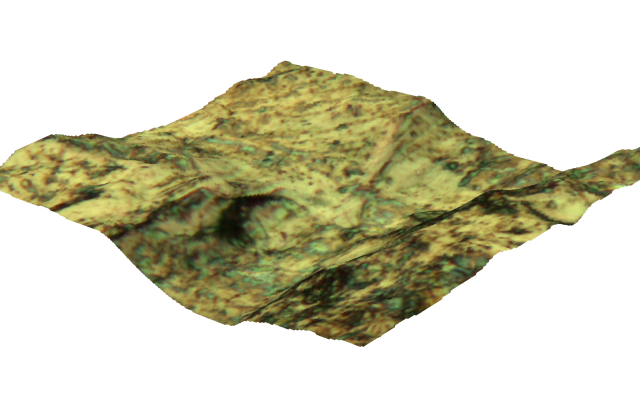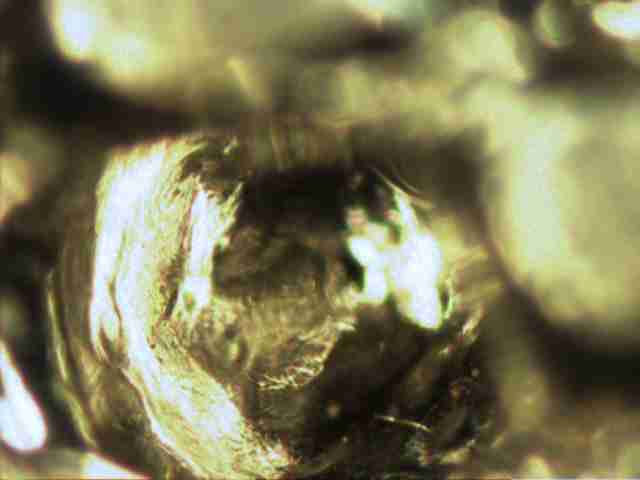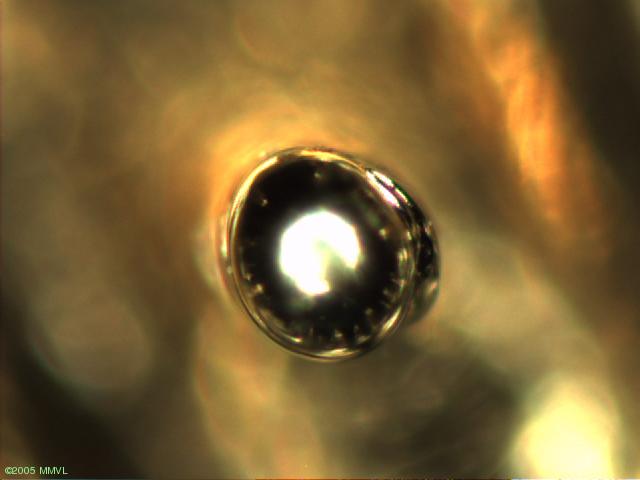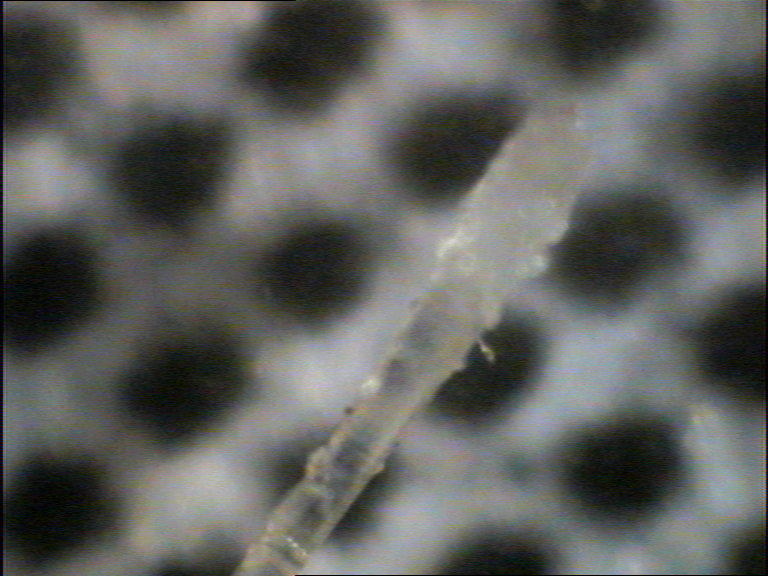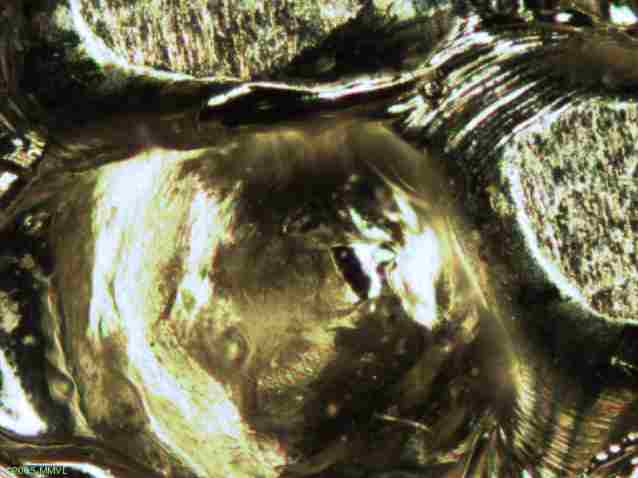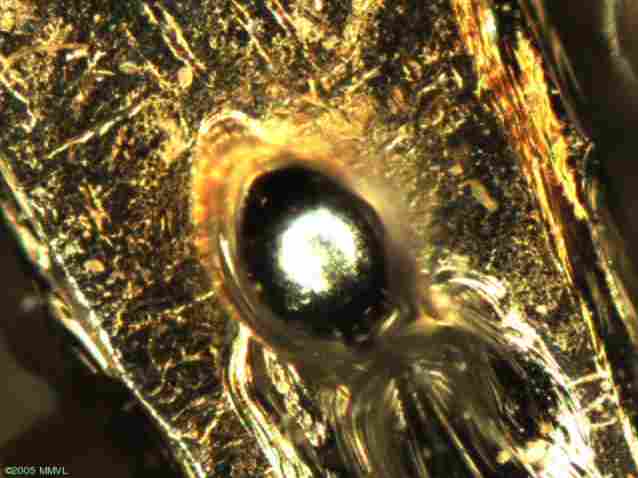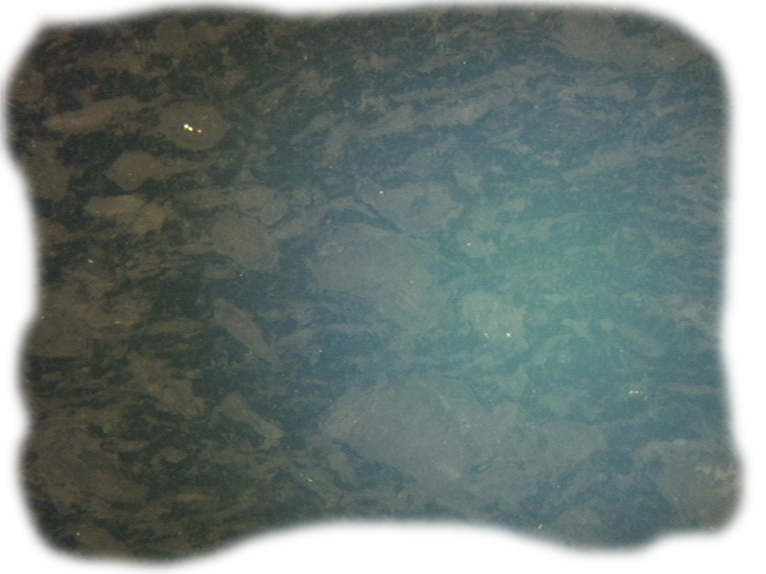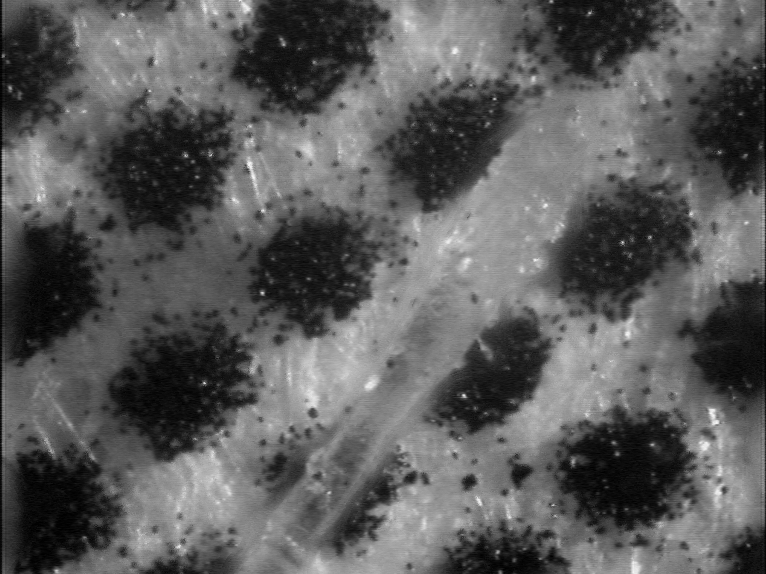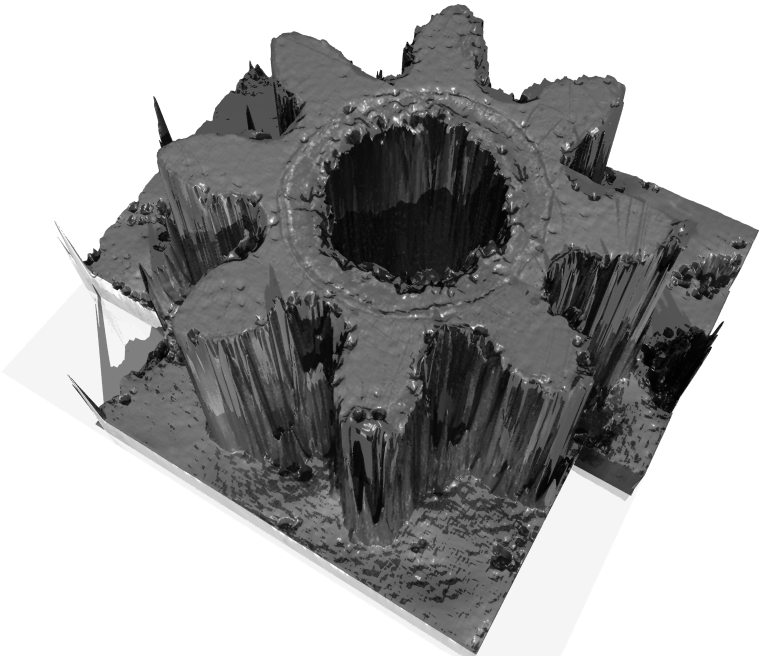Depth from Focus
m (→3D surface metrology) |
m (→3D surface metrology) |
||
| Line 10: | Line 10: | ||
* Non-destructive measurement of surface profiles | * Non-destructive measurement of surface profiles | ||
* With our experimental settings we observed (of course the result will depend on the quality of the microscope) | * With our experimental settings we observed (of course the result will depend on the quality of the microscope) | ||
| − | ** Vertical resolution | + | ** Vertical resolution <math>\ge 0.2\ \mu m</math> (depending on aperture-size, magnification, projection-pattern and the surface properties of the object). |
| − | ** Lateral resolution | + | ** Lateral resolution <math>\ge 2\ \mu m</math> (depends). |
* '''Open Source''' (you are free to improve the code yourself if you redistribute it). | * '''Open Source''' (you are free to improve the code yourself if you redistribute it). | ||
Revision as of 13:44, 3 November 2006
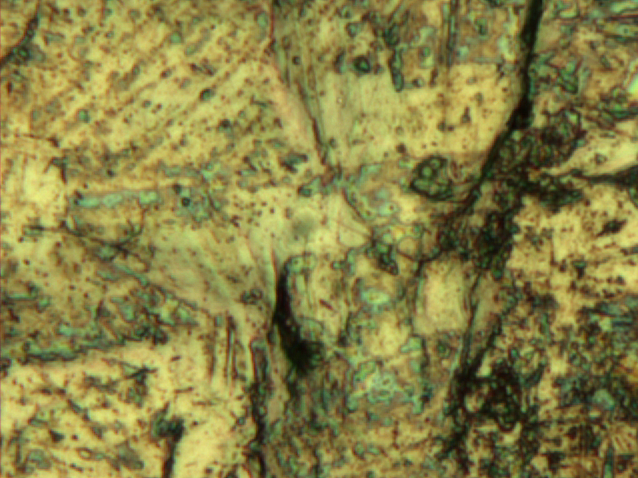 Extended depth-of-field image showing part of a 10-pence coin (compare with 1.39 MByte video of focus stack) |
Contents |
Depth from Focus
3D surface metrology
- In principle it should work with any microscope, which has a motorized z-drive and a digital camera (see Mimas video input).
- The results will be even better, if the illumination optics of the microscope can project a pattern.
- Non-destructive measurement of surface profiles
- With our experimental settings we observed (of course the result will depend on the quality of the microscope)
- Vertical resolution <math>\ge 0.2\ \mu m</math> (depending on aperture-size, magnification, projection-pattern and the surface properties of the object).
- Lateral resolution <math>\ge 2\ \mu m</math> (depends).
- Open Source (you are free to improve the code yourself if you redistribute it).
In general one can say: The lower the depth of field, the higher the resolution of the reconstruction. With high magnification (assuming constant numerical aperture) the resolution of the reconstruction goes up. The trade-off is that the reconstruction will cover a smaller area. This could be overcome by lateral stitching (e.g. cogwheel below).
Demonstration
Here are some typical microscope images (showing a surface, which has been shaped using a power beam).
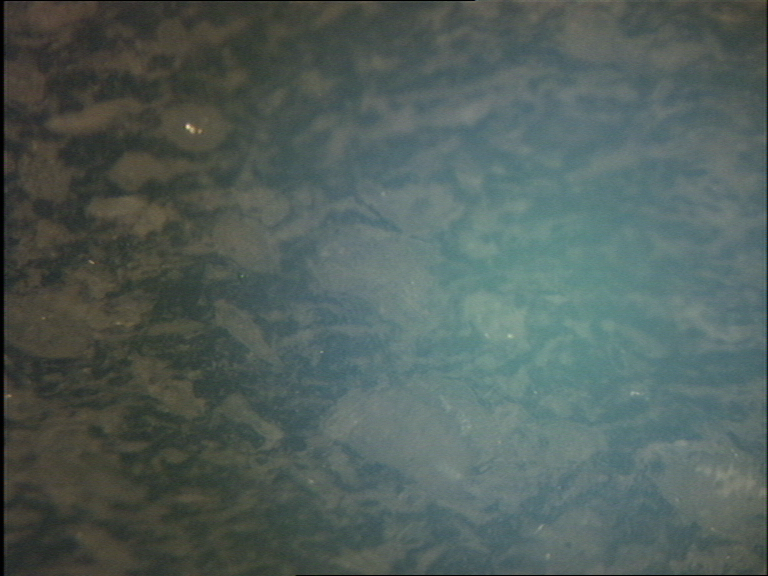 Piece of Suevit (enamel like material from meteorite impact) from the Nördlinger Ries, Leica DM RXA |
Using a focus-stack one can compute images with extended depth of focus:
If the surface can be illuminated properly, one can even do a 3D-reconstruction of the surface:
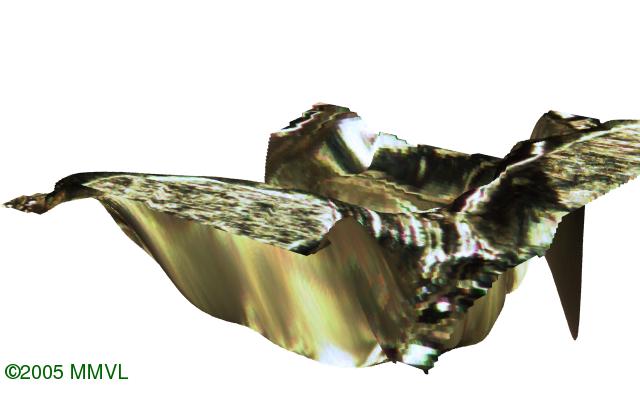 3D reconstruction of first object (742kB video) |
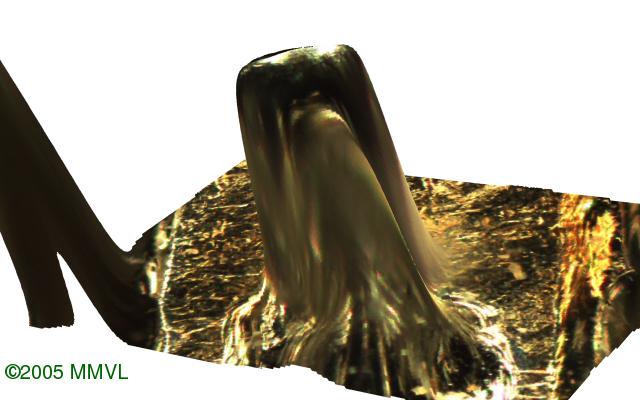 3D reconstruction of second object (725kB video) |
[[Image:suevit20.png | 200px|3D reconstruction of suevit (1.4MB video)]] | 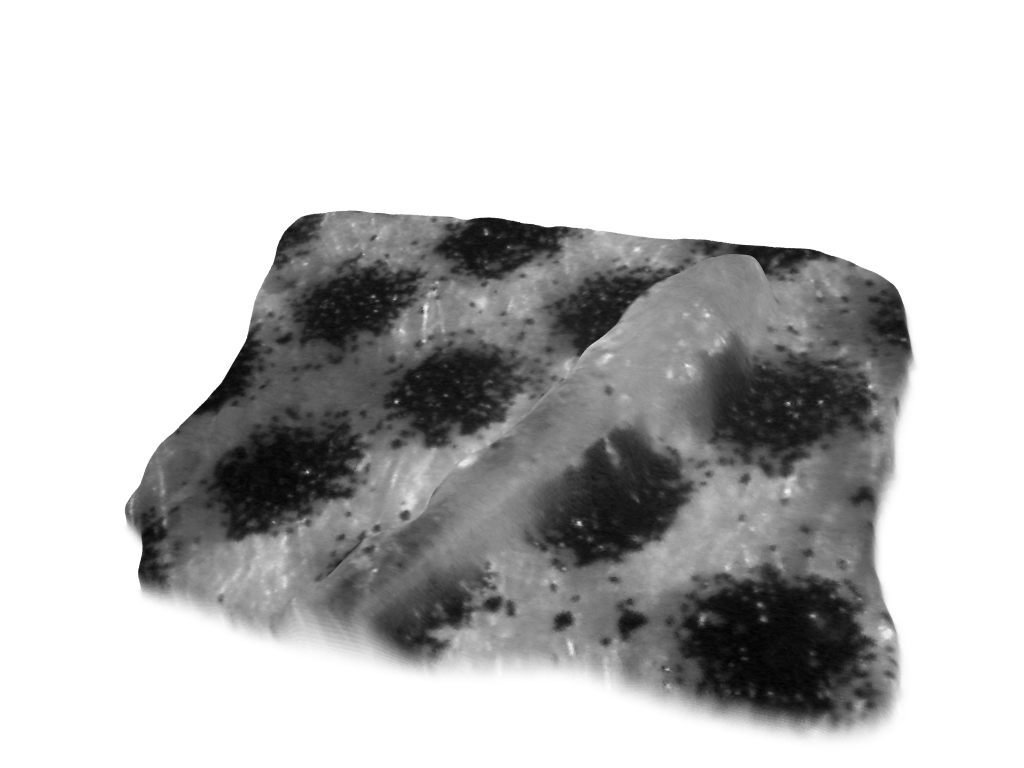 3D reconstruction of hair (1.4MB video) |
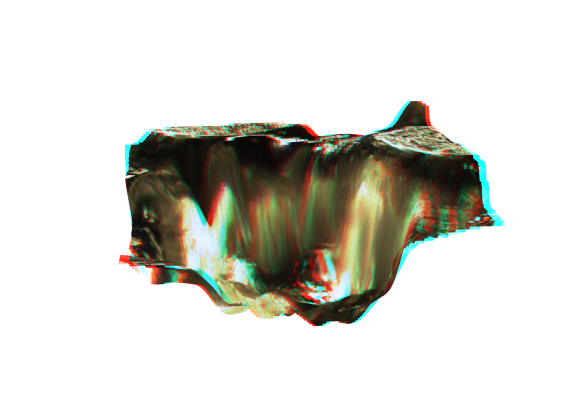 Red-cyan anaglyph image of first object (2.0MB video) |
 Extended depth of field image for a piece of sugar (compare with 532 kByte video of focus stack) |
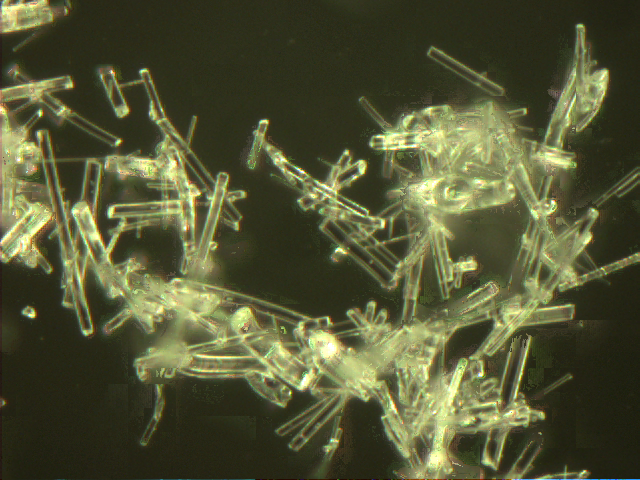 Extended depth of field image of glass fibers (compare with 1.09 MByte video of focus stack) |
As the idea for the algorithm was fixed already, it was possible to implement the algorithm as a command-line tool in less than 4 days, using existing Mimas-software (exspecially the operators for boost::multi_array).
As this is a "quick hack", there's still lots of space for improvements.
Download
![]() The software for estimating height-maps and images with extended depth-of-field is available for free (under the LGPL)! You first need to install version 2.0 of the Mimas Real-Time Computer Vision Library to be able to compile and run depthoffocus-0.1 (652 kByte). The software also comes with sample files to generate photo-realistic 3D-reconstruction using POVRay!
The software for estimating height-maps and images with extended depth-of-field is available for free (under the LGPL)! You first need to install version 2.0 of the Mimas Real-Time Computer Vision Library to be able to compile and run depthoffocus-0.1 (652 kByte). The software also comes with sample files to generate photo-realistic 3D-reconstruction using POVRay!
Links
- Anaglyph images
- german diploma thesis about depth of focus (also available as PDF)
- Mechrob-paper Focus set based reconstruction of micro-objects
- Depth-from-focus applied in forensic science, MRT Karlsruhe
- Focus stitching software CombineZ5 and examples at http://www.micropics.org.uk/
